Gut health: responding to pathogens, tolerant to food
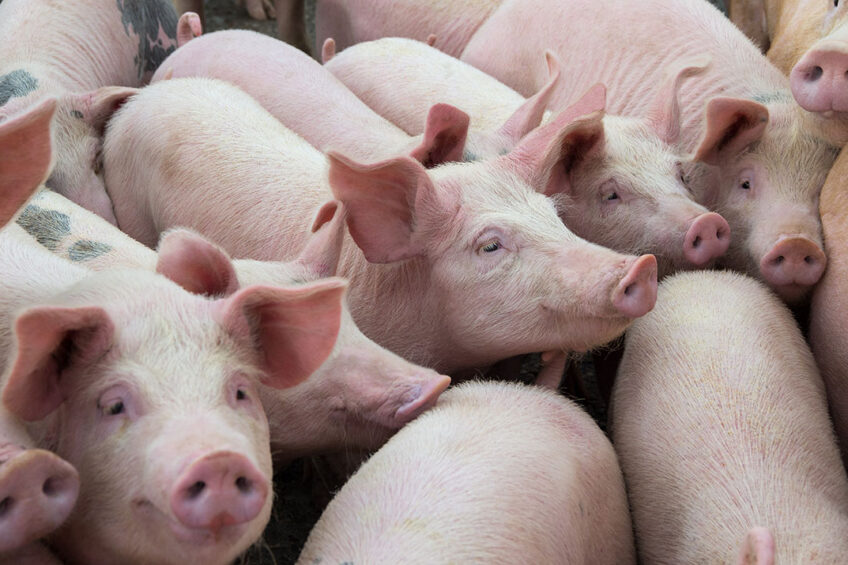
With the intensification of the pork industry, the threat of infectious diseases is a concern not only for animal welfare but also for the economic situation of pig farms. Key in counteracting this threat is a combination of preventive measures. A wood-derived supplement can enhance both aspects of gut health: the acute and preventive.
Striving to meet the demand for animal protein of a growing world population, meat production systems have evolved into highly efficient businesses in recent decades. With respect to pork production, this intensification has resulted in single farms housing thousands of individuals under high stocking density. This environment is sure to have a relatively high incidence of infectious diseases. That is not only a threat for animal welfare. It also bears the risk of tremendous health-related costs of a farm.
Top 40 pathogens in the swine industry
In their meta-study on the years between 1966 and 2016, published in 2018, scientists Kimberly VanderWaal and Professor John Deen of the University of Minnesota, USA, concluded that the top 40 pathogens in the swine industry include 16 viruses, 15 bacteria, 8 helminth parasites and 1 protozoan. It is obvious that the gastrointestinal tract (GIT) has a prominent role in resilience. It is the first line of defence against most of those pathogens.
Even if from a scientific perspective the term “gut health” is hard to measure. Different definitions can be found in literature. An intact and healthy GIT operates as a solid prevention against pathogens of different qualities.
Definition of gut health
At the recent Zero Zinc Summit 2022 in Copenhagen, Denmark, Professor Mick Bailey, attached to the University of Bristol, UK, gave a good definition of gut health: the ability of the mucosal immune system to mount effector immune responses against pathogens but maintain tolerance to food and commensal microbiota.
The most common problem on swine farms
The broad scope of that definition can be nicely applied to one of the most common problems in swine farms around the globe: diarrhoea. Diarrhoea causes significant economic losses in pig production by affecting all stages of a pig’s life, from early weaning up to finishing.
Causes of diarrhoea
The causes of diarrhoea are diverse and range simply from immature GIT of weaners to diet imbalances and infections with viruses or bacterial pathogens, as mentioned above. Moreover, those infections are rarely due to one single pathogen, but to causes that interact with each other. But despite those manifold and complex origins, a healthy and proper functioning GIT will reduce the risk of a diarrhoea outbreak and further influence pathogen transmission within the herd.
Acute vs preventive measures for gut health
Since every conscientious farm manager is eager to avoid an outbreak of an acute infection – which would need to be medically treated and is cost and labour intensive – the focus needs to be on the preventive measures minimising vulnerability to pathogens. That can be achieved via 2 parallel methods:
Attenuation of pathogenic pressure by modulating extrinsic risk factors. This includes implementing the highest hygienic standards in the facility. It also includes avoiding inadequate sanitation, insufficient disinfection, cold and humid facilities or the introduction of animals with asymptomatic diseases into the established herd.
Elevation of resilience against pathogenic pressure by modulating intrinsic risk factors.This includes strengthening the animal’s immune system and supporting the GIT. The GIT epithelia is the first contact site for pathogens.
Evaluation and production of feed and feed supplements
To equip animals with improved resilience against pathogens, much effort needs to be put into the evaluation and production of feed and feed supplements. This is of special interest in view of the withdrawal of antibiotic growth promoters (AGPs), which limited the growth of potential pathogenic bacteria in the GIT and thus reduced the incidence or severity of intestinal infections.
Pigs more sensitive to diet imbalances
Furthermore, they controlled local inflammatory responses caused by these intestinal infections and consequently improved intestinal integrity. Due to the global pressure to phase out AGPs and therapeutic dosing of zinc oxide, pigs are becoming more sensitive to diet imbalances.
Consequently, diet formulations need to be more precisely aligned to the needs of the animal to maintain intestinal health. A well-balanced fibre supply, the supplementation of probiotics, the use of highly digestible protein sources and avoiding an oversupply of protein are widespread and basic tools to keep gut functionality at the highest level and prevent the occurrence of diarrhoea. Nevertheless, the inclusion of feed supplements specially designed to strengthen the gut barrier can provide added value.
Wood makes the difference
One part of the solution is sustainably growing all around us: wood. The development of feed supplements derived from fresh wood started decades ago, with the formulation of special lignocelluloses focusing on fibre supply. In recent years, the research focus has moved to the bioactive molecules to be found within different wood species.
Agromed Protect
With Agromed Protect, the Austrian company Agromed has succeeded in developing a wood-derived feed supplement to counteract the negative consequences of diarrhoea by strengthening the gut barrier and thus lowering the risk of pathogens invading the blood system.
As presented at the 15th International Symposium of Digestive Physiology in Pigs (DPP 2022), the phytonutrient composed of wood phenolic acids and wood lignans caused a significant improvement of the gut integrity: fluorescein isothiocyanate-(FITC)-dextran is a marker with a high molecular weight, so that it is not permeable to an intact intestinal epithelium. Thus, after oral administration, increased dextran concentration in the blood reflects a higher gut permeability.
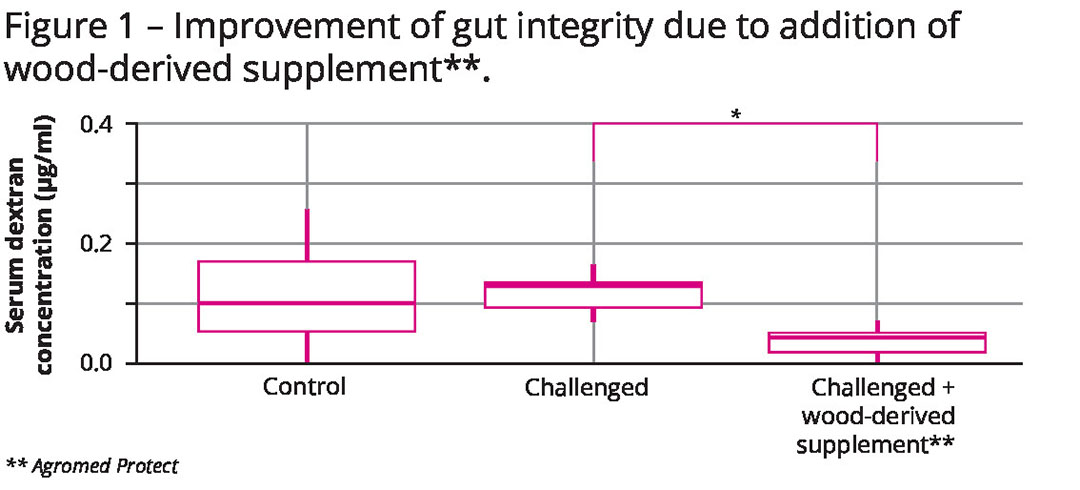
Gut permeability significantly reduced
Figure 1 demonstrates an expected increase of dextran in the serum of piglets artificially challenged with Brachyspira hyodysenteriae compared to healthy ones. In piglets that were supplemented with the wood-derived feed supplement, the gut permeability was significantly reduced, which gives proof of a higher hurdle for pathogens to pass the gut wall.
Antioxidative capacity
Moreover, the phytonutrient supports the animals against diarrhoea due to a remarkable antioxidative capacity. Even the lignans and phenolic acids used in the product reveal antibacterial effects. This further contributes to lowered pathogenic pressure.
The perfect reservoir for pig diseases
Highly intensified pork production systems are the perfect reservoir for infectious diseases. Key in counteracting this health threat is a combination of preventive measures. An example is reducing pathogenic pressure by implementing the highest hygiene standards. Supporting resilience against pathogens through taking the utmost care of animals’ gut health is another.
Agromed Protect is an effective wood-derived feed supplement based on actives from selected tree species. It is tailored to support pigs prophylactically to cope with different kinds of diarrhoea. Its properties reduce pathogenic stress while strengthening the gut barrier, thus improving the first line of defence against pathogens.
 Beheer
Beheer
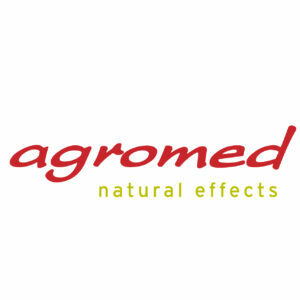

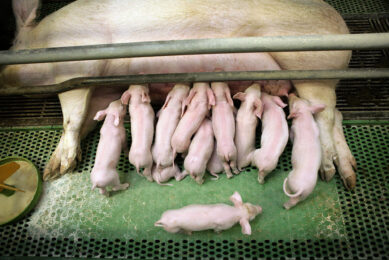
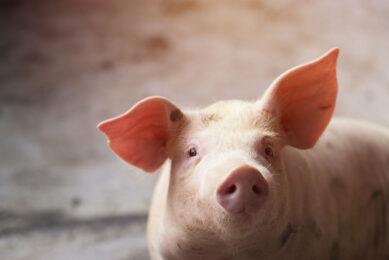
 WP Admin
WP Admin  Bewerk bericht
Bewerk bericht